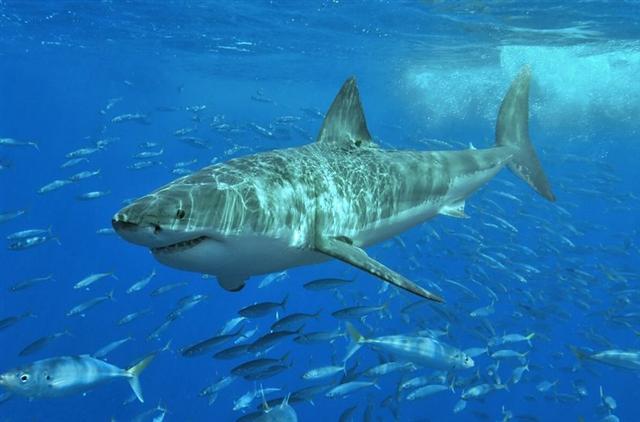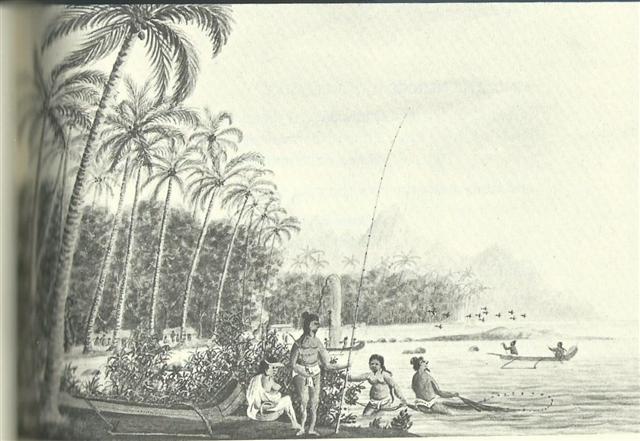For the Polynesians, always living on islands, the reef with adjoining beach was a pleasant central place between the cold deep sea (moana) and the hot interior of the land (uta). This place was called tai:
From Metoro's kua moe ki te tai to the end of line Cb2 we should keep te tai in mind when trying to understand the text:
The first word of Metoro when reading the front side (side a) of the tablet was koia ('mixed together'). However, it is possible that Metoro at Ca1-26 with his ki te tai (to the beach) meant the position at the very end of moana, where the reef is going steeply up and the big game are hunting the smaller ones.
The glyph type niu represents the coconut palm:
These valuable trees were growing on the sandy beaches:
(Copied from Antony Alpers, Legends of the South Seas.) A net for catching fish is drawn at bottom right in this idyllic picture. A fishing net is kupega in Polynesian:
| |||||||||||||||||||||||||||||||||||||||||||||||||||||||||||||




